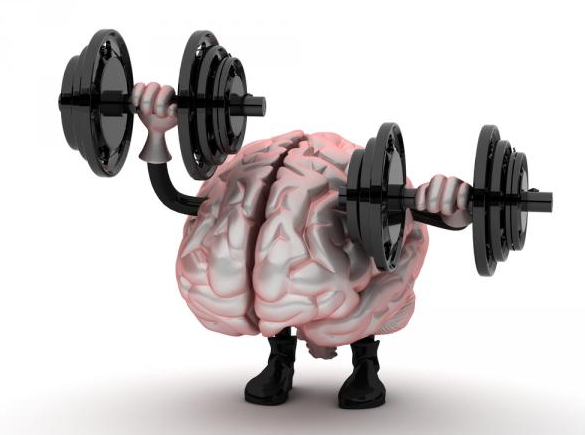
The human brain, a complex and dynamic organ, possesses vast potential often left untapped daily.
Enhancing cognitive functions naturally is a quest for many seeking to improve memory, focus, and overall mental agility. This comprehensive guide aims to explore the realm of natural cognitive enhancers, providing in-depth knowledge to harness these substances for optimal brain performance.
Understanding Natural Cognitive Enhancers
Natural cognitive enhancers, also known as nootropics, encompass a range of substances that aim to augment brain function. They offer a safer and often more sustainable alternative to synthetic counterparts, with fewer side effects and a long history of use in traditional medicine.
- Mechanisms of Action: The primary ways these enhancers operate include:
- Neurotransmitter Enhancement: They often increase levels of key neurotransmitters like acetylcholine, which plays an essential role in learning and memory processes.
- Blood Flow Stimulation: By enhancing cerebral blood flow, they ensure better delivery of oxygen and nutrients to the brain, crucial for its optimal functioning.
- Oxidative Stress Reduction: These substances often provide antioxidant benefits, combating oxidative stress that can lead to cognitive decline and neurodegenerative diseases.
Key Natural Enhancers and Their Benefits
The range of natural cognitive enhancers is diverse, each with unique properties and benefits. Understanding their roles can guide users in choosing the right enhancer for their mental goals. For an updated list of the best nootropics in 2024, as reviewed by the Jerusalem Post, you can refer to their detailed article here. This resource provides an in-depth analysis of the latest and most effective nootropics currently available.
Omega-3 Fatty Acids
- Source and Action: Predominantly found in fish oil, flaxseeds, and walnuts, omega-3 fatty acids are vital components of cell membranes in the brain. They exhibit anti-inflammatory and antioxidant properties, protecting the brain from aging and stress.
- Cognitive Benefits: Omega-3s have been linked to improvements in memory, especially in older adults. They are also associated with a slower rate of cognitive decline and a reduced risk of neurodegenerative diseases like Alzheimer’s.
Ginkgo Biloba
- Historical Use and Effects: Used for millennia in traditional Chinese medicine, Ginkgo Biloba is derived from one of the oldest tree species. It is known for its ability to improve blood circulation in the brain and its potent antioxidant effects.
- Impact on Cognitive Functions: Clinical studies indicate that Ginkgo Biloba can enhance memory and processing speed, particularly in individuals experiencing cognitive decline due to aging. It may also improve attention and alleviate symptoms of anxiety and depression.
Role of Diet in Cognitive Enhancement
Diet is a cornerstone of brain health, with specific diets and foods showing pronounced benefits for cognitive function.
The Mediterranean Diet
- Components: Characterized by a high intake of vegetables, fruits, whole grains, fish, and healthy fats like olive oil, the Mediterranean diet stands out for its cognitive benefits.
- Benefits: Adherence to this diet has been correlated with a reduced risk of Alzheimer’s and slower cognitive decline. It provides essential nutrients like omega-3 fatty acids, antioxidants, vitamins, and minerals that are crucial for brain health.
Brain-Boosting Foods
- Berries: Berries such as blueberries and strawberries are rich in flavonoids, antioxidants that reduce inflammation and oxidative stress in the brain, potentially delaying brain aging and improving communication between brain cells.
- Nuts and Seeds: Sources of vitamin E, nuts, and seeds can counteract cognitive decline. Almonds, hazelnuts, and sunflower seeds are some of the best choices for vitamin E intake.
- For those interested in supplementing their diet, consider incorporating NooCube, a nootropic supplement designed to support cognitive function and mental performance. It contains ingredients that help boost focus, memory, and problem-solving skills.
Lifestyle Factors Influencing Cognitive Health
Beyond dietary choices and natural supplements, lifestyle habits play a significant role in maintaining cognitive health.
Physical Exercise
- Impact: Physical activity is not only beneficial for physical health but also crucial for cognitive health. It stimulates the production of brain-derived neurotrophic factor (BDNF), a protein that promotes neuron growth and protection.
- Recommended Activities: Engaging in regular aerobic exercise like jogging, cycling, or swimming can significantly boost brain health. Even moderate activities like brisk walking can have positive effects.
Mental Stimulation
- Brain Training: Activities that challenge the brain, such as solving puzzles, playing chess, learning new languages, or playing musical instruments, can create new neural connections and strengthen existing ones.
- Neuroplasticity: These mentally stimulating activities encourage the brain’s plasticity, its ability to change and adapt, thereby enhancing cognitive resilience even in older age.
Conclusion
In conclusion, tapping into the brain’s potential involves a comprehensive approach, integrating natural cognitive enhancers, a nutritious diet, and a lifestyle that fosters both mental and physical health.
By understanding and leveraging these principles, individuals can significantly boost their cognitive functions, improving memory, sharper focus, and better overall brain health. This journey towards cognitive enhancement is a step towards harnessing the full potential of our most powerful organ – the brain.


















Follow Us